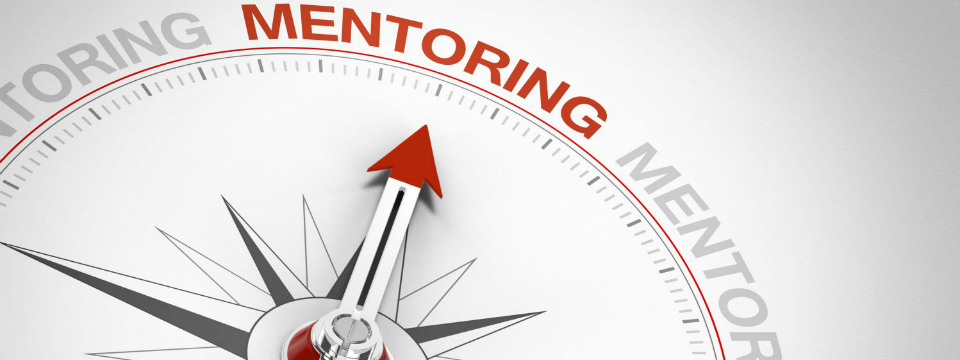Creating a culture of belonging: How teachers and mentors can help students navigate the return to in-person learning
by Jean E Rhodes
School closures and the loss of face-to face instruction remain persistent struggles as schools work to contain COVID-19. In recent months, researchers have begun to publish studies and reports that have explored the academic and social toll that these closures have taken on students academic and social-emotional well-being. In a new study that was conducted in the Netherlands–a country that has one of the most equitable systems of school funding and the world’s highest rate of broadband access–researchers found that students made little or no progress while learning from home. Not surprisingly, the most profound learning losses were among more marginalized students. Other studies are finding learning losses equivalent to nearly a year of school.
Although there are many reasons for these losses, one implications is that caring connections and opportunities to interact with teachers and mentors are even more essential for learning than we assumed. This has implications for the transition back to the classroom after the long disruption. Teachers who create warm, empathic classroom environments can, as David Brooks, has noted, “guide [students] back toward calmness,…teachers who motivate their students to show up every day and throw themselves into school life may not even realize how good they are, because emotional engagement is not something we measure and stress.” Brooks argues for a a more “caring culture so students feel loved while they improve; a culture of belonging, so fragile students feel their work has value. … Many teachers sense that students are more emotionally vulnerable today. Social policy has to find a hundred ways to nurture loving relationships. Today we have to fortify the heart if we’re going to educate the mind.”
Indeed, as all parents know, children’s relationships with their teachers and other caring adults at school are crucially important, affecting students’ connection to school, motivation, academic performance, and psychosocial well-being. Students spend a great deal of time at school, and the classroom is the source of many of their interpersonal relationships. Although children’s social adjustment to school was initially examined primarily through relationships with classroom peers, research has increasingly has highlighted the significance of student-teacher relationships. Good student-teacher relationships are characterized by low levels of conflict and high levels of closeness, as well as actions and conversations designed to support children’s motivation to explore as well as their growing ability to regulate social, emotional, and cognitive skills.
As this implies, teachers play a role in shaping relationships through the emotional quality of their interactions with children, as well as their responsiveness to students’ needs. They can be particularly important to early adolescents, who are often undergoing profound shifts in their sense of self and are struggling to negotiate changing relationships with their parents and peers. Since teachers have the advantage of largely standing outside these struggles, they can provide a safe haven for support and guidance, while transmitting adult values, advice, and perspectives according to research. Supportive relationships with teachers also appear to increase students’ motivation to learn and actively participate in subjects that may have held little interest for them. Teacher support also appears to have an impact on psychological adjustment. For example, students who attend middle schools that deliberately seek to enhance teacher-student relationships tend to have fewer adjustment difficulties during the transition. In our work, we have found that changes in perceptions of teacher support predict changes in both self-esteem and depression among middle school students, such that students who perceived increasing teacher support showed corresponding decreases in depressive symptoms and increases in self-esteem, while students who perceived decreasing teacher support showed increased depressive symptoms and decreased self-esteem. Other researchers have emphasized the impact of positive teacher relationships on students’ social development, with this support helping students develop crucial social-emotional skills. These findings suggest that teacher support can help to buffer some of the stress associated with the pandemic and lock downs, offsetting the risk for adjustment difficulties. Of course, teachers aren’t immune to the stressors, uncertainties, and challenges of the pandemic. In one study, researchers found that elementary teachers’ levels of stress and negative affect predicted the number of students with whom teachers had negative relationships. Teachers who are stressed out may be more likely to display inappropriate negative affect, such as anger and hostility
The supportive potential of teachers has not gone unnoticed among school reformers, however, and they recommend a broad array of efforts to capitalize on it. A major challenge for schools will be to create settings that can increase and facilitate teachers’ and other staff members’ caring potential, while maintaining academic rigor and teacher autonomy. This means making teacher salaries more competitive (the medium teacher salary in Boston hovers around $50,000 per year) and establishing a corps of highly qualified and high-quality teachers, professionals, and paraprofessionals, we should evaluate school policies in terms of their effects on student-teacher relationships.
- There is unequivocal evidence that lowered student-teacher ratios are associated with improved student achievement and competence, and this is a straightforward means of improving teacher-student interactions. Similarly, policies that ensure more contact and continuity with teachers, such as homerooms, advising, and multiyear teacher assignments, might provide students with support for learning and development through relationships.
- Resources should be deployed that enhance student-teacher fit such that the student feels supported and the teacher feels effective. Platforms such as, Along, a digital reflection tool developed by the Chan Zuckerberg Initiative and Gradient Learning, can help teachers make each of their students feel seen and understood. This research-backed tool allows teachers and students to create quick videos, audios or text messages that can foster safer and more open communication. Learn more at Along.org.
- Interventions at the school climate level can also affect student teacher contact and quality through restructuring of time and scheduling, allocation of space and teaching resources, placement policies, and work related to school values, cultural issues, and staff support and involvement in decision making. Such programs, involving changes at the classroom level, such as the Child Development Project, or within specific student-teacher interactions, such as the Students, Teachers, and Relationship Support (STARS) system, should be more widely implemented, so that children and adolescents can reap the many benefits associated with positive student-teacher relationships.
This brings us to mentoring, and the vital role that both natural mentors (e.g., caring teachers, coaches) and formal mentors (i.e., assigned through a program) can play in fortifying students as they head back into class and renegotiate the complicated social context, particularly those who may be sensitive to rejection (see this related post where experts weigh in on mentoring in the context of the pandemic). Social distancing and school closures resulted in increased loneliness in children and adolescents whose usual social contacts are curtailed . Loneliness, which is linked to mental health problems in children and adolescents, has been defined as the “painful emotional experience of a discrepancy between actual and desired social contact.” and during COVID-19 more than one-third of adolescents report high levels of loneliness. By acting as a sounding board and providing a model for interpretation of stressors, interpersonal challenges, and effective communication, mentors can help adolescents better understand, more clearly express, and more effectively regulate both their positive and their negative emotions. In one study, my colleagues and I drew on data from a large-scale, national evaluation of Big Brothers Big Sisters (BBBS) to explore whether mentoring can lead to actual reductions in rejection sensitivity. The results were encouraging–they suggested that trusting mentoring relationships led to reductions in youth’s sensitivity to interpersonal rejection over time. Such reductions, in turn, were associated with higher levels of assertiveness with peers and more prosocial behavior, as well as improvements in youth’s relationships with their teachers. The findings suggest that previous associations between mentoring and improved relationships might be accounted for, at least in part, by the reductions in rejection sensitivity that come with being in a safe context that enables young people to process and understand interpersonal challenges.
These findings highlight the importance of providing mentors with training around relationship building, so they can help students navigate the challenges of re-engaging with teachers and peers. Evidence-based tools and training that delve into issues of trust and empathy and building strong working alliances, may be particularly helpful in this regard.










